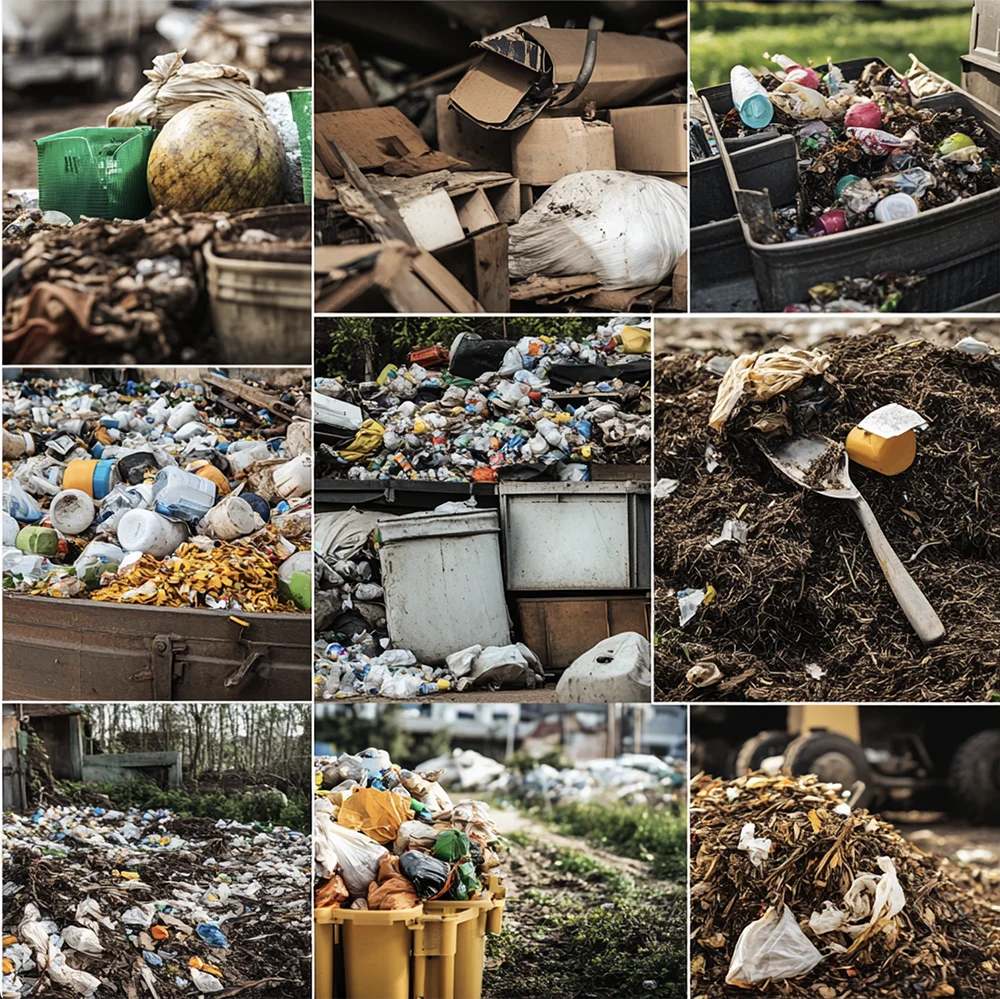Waste left uncollected and exposed to the sun, particularly during the hot months, can emit strange and potentially hazardous gases. This phenomenon poses significant health and environmental risks that often go unnoticed. What you need to understand is that these gasses are not harmless. Once you know the science behind them, you will be able to appreciate their potentially damaging effects. It goes beyond saying that understanding these specific types is crucial for proper waste management and public safety.
Types of Gases Emitted
Methane
Methane is a colourless and odourless gas commonly produced by the anaerobic decomposition of organic matter. Methane is released when domestic rubbish, such as food scraps and garden clippings, breaks down without oxygen. This gas is highly flammable and can form explosive mixtures with air, presenting a significant danger in confined spaces. I bet you didn’t know that one. A failed rubbish removal arrangement can contribute to complications if the refuse bags are left in confined places indoors.
Ammonia
Ammonia is a pungent gas released from the decomposition of nitrogen-containing organic materials, such as food waste and certain types of garden waste. High ammonia concentrations can irritate the eyes, nose, and throat, and prolonged exposure can lead to respiratory issues.
Hydrogen Sulphide
Hydrogen sulphide, recognisable by its rotten egg smell, is produced during the bacterial breakdown of organic matter in the absence of oxygen. Even at low concentrations, hydrogen sulphide can cause headaches, dizziness, and nausea. It has been confirmed that at higher concentrations, it can be life-threatening.
Volatile Organic Compounds (VOCs)
VOCs are a group of organic chemicals that can easily become vapours or gases. They are released from various waste materials, including plastics, paints, and solvents. Some VOCs can cause short-term health effects like eye and respiratory tract irritation, while others may have long-term health implications, including cancer.
Health Risks
Exposure to these gases can have various health effects, ranging from mild discomfort to serious health conditions. Short-term exposure can cause symptoms such as headaches, nausea, and respiratory system irritation. Long-term exposure, particularly to gases like VOCs and hydrogen sulphide, can lead to chronic respiratory conditions and other serious health issues.
Environmental Impact

The release of methane from decomposing waste significantly contributes to greenhouse gas emissions, exacerbating climate change. VOCs can contribute to the formation of ground-level ozone and smog, which are harmful to human health and the environment.
Preventive Measures
Proper waste management is essential to mitigate the risks associated with gas emissions from sun-exposed waste. Some effective strategies include:
- Regular Waste Collection: Ensuring timely waste collection to prevent prolonged exposure to sunlight.
- Proper Waste Segregation: Separating organic waste from other types of waste facilitates composting and reduces the volume of waste prone to gas emissions.
- Composting: Composting organic waste in a controlled environment can prevent the release of harmful gases and produce useful compost for gardens.
- Ventilation: Storing waste in well-ventilated areas can help disperse gases and reduce the risk of harmful exposure.
Staying Safe and Sustainable
The unseen danger of strange gases from sun-exposed waste underscores the importance of good waste management. By understanding the types of gases released, their health risks, and their environmental impacts, we can all take steps to mitigate these dangers. Timely waste collection, proper segregation, and composting are simple yet effective strategies. These practices protect our health and contribute to a greener, more sustainable world. Let’s work together to keep our environment safe and our communities healthy.